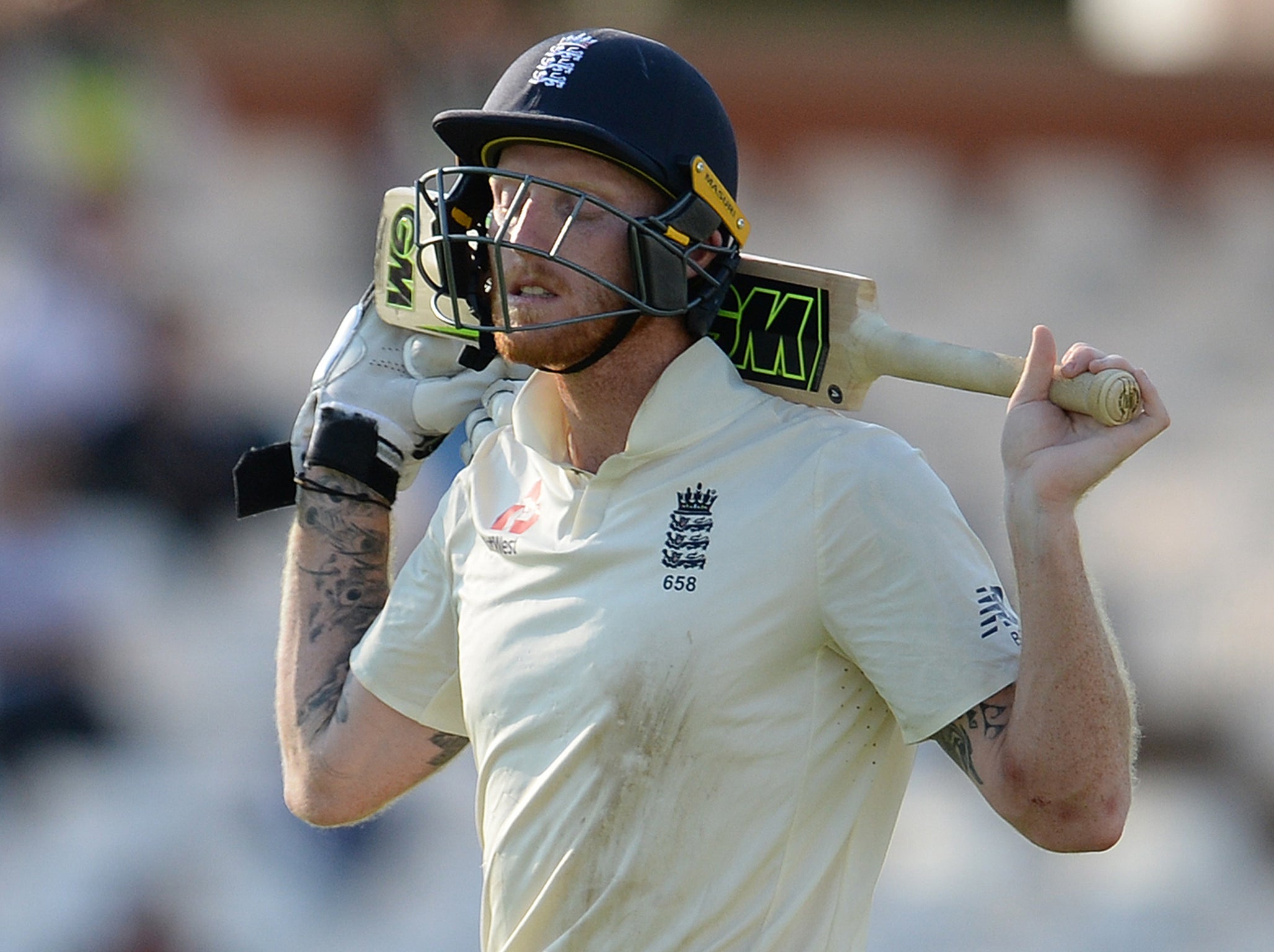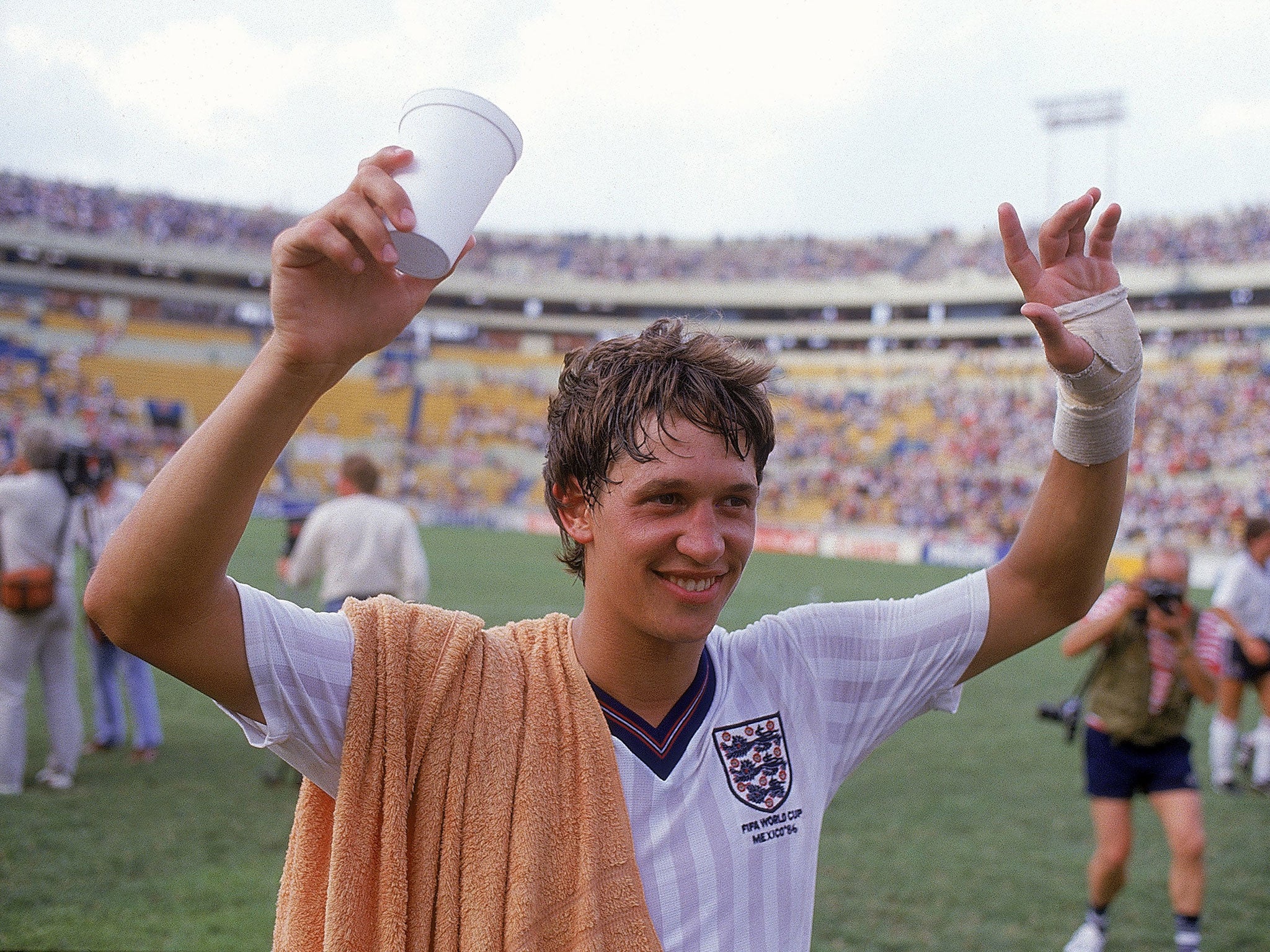Yes, Ben Stokes and Danny Cipriani are flawed – that makes them the best kind of sporting heroes
The hopes and expectations that rest on the shoulders of sporting titans are more than most of us could deal with – why should they be forced to deal with the added pressure of acting at all times like Mary Poppins?

We have known for a long time that Ben Stokes can hit a cricket ball very hard. Now, thanks to the CCTV footage shown at his recent affray trial, we are uncomfortably aware that he can punch men in the face with considerable force too.
For Stokes, being acquitted of the charge against him must have come as a relief. Still, being embroiled in a late night street fight – conviction or no conviction – isn’t a great look for anyone, let alone a professional sportsman. In the wake of the incident last year he lost both commercial endorsements and his place in the England cricket team. Even now, following a jury’s not guilty decision, he faces the prospect of further scrutiny by the Cricket Discipline Committee, which has the power to impose its own punishments if it finds that Stokes has brought the game into disrepute.
Just days after Stokes walked free from court in Bristol, another sporting star hit the headlines for all the wrong reasons when Danny Cipriani was arrested during a night out in Jersey. On the island as part of a pre-season tour with his Gloucester teammates, the rugby player pleaded guilty to assaulting a nightclub bouncer and resisting arrest, issuing an apology for his behaviour after being handed a £2,000 fine by Jersey Magistrate’s court and ordered to pay £250 compensation to a female police officer.
Cipriani may have been fortunate that the incident was classified by the magistrate as “minor”; that will mean he can – following the outcome of a misconduct hearing by Rugby’s governing body (the RFU), which decided to impose no further sanctions – get back to work when the new season begins in September.
Neither Cipriani nor Stokes are strangers to controversy. The former was convicted of drink-driving in 2015, while two years earlier he was injured during a pub crawl in Leeds when he was hit by a bus. Stokes for his part was arrested in 2011 for obstructing a police officer and was sent home from the England Lions tour of Australia after ignoring rules about drinking alcohol.
With such track records behind them, it is inevitable perhaps that their recent indiscretions have led commentators and fans alike to ask what it might take for them to change their ways. This question appears to take on added urgency when allied to the notion that these men are – as a result of their sporting success – roles models for youngsters who idolise them as heroes and who should expect better from them.
But is it fair that we should hold men like Stokes and Cipriani to higher standards simply because they excel at an activity that means they are venerated by children (and indeed adults) who would like to share their talent, or be inspired by it? For as long as kids have mimicked their idols, debate has raged on this issue.
The case for the prosecution – as it were – pays particular regard to evidence of children copying bad behaviour they have seen exhibited by sportsmen (and to a lesser extent women) on television or at live venues.
This summer, a head teacher banned pupils from playing football in the playground after he witnessed them fouling and play-acting in the manner they had seen their role models behave during the World Cup. He said he wanted to “tackle the negative role models of some professional players”. Some years ago, referees in the Oldham Sunday League went on strike because they feared for their safety.
In cricket, “sledging” on the field of play has become an increasing problem, as amateurs young and old copy the abusive taunts they see and hear from professionals. On-field microphones have enabled officials to crack down on the worst exchanges, but their presence has also ensured that the public is ever more likely to become aware of what has been said. Former Australian cricket captain Michael Clarke telling England’s James Anderson to prepare for a “f***in’ broken arm” is a notable instance.
The case for the defence rests not primarily on opposing the premise that such copycat behaviour occurs. Indeed, anybody who has ever played sport as a child will know that that the notion is irrefutable – from goal celebrations and spitting, to sledging and arguing with line judges: if it’s been done by a professional, a child convinced of their own sporting brilliance will have followed suit.
Rather, the contrary argument disputes the presumption that higher standards must be required of a sports star simply because their actions might affect the behaviour of others. These are people who do not, after all, perform an official public function – they have not been elected to office and are not paid out of the public purse. They might, if they’re good enough, represent their country but they will do so in a sporting capacity only, not a moral one.
These contentions are not unappealing. What’s more, the hopes and expectations that rest on the shoulders of sporting titans are more than most of us could deal with – why should they be forced to deal with the added pressure of acting at all times like Mary Poppins?
The role model brigade might point out that not all sporting heroes act like oafs. Gary Lineker famously never got yellow or red-carded in his professional career. Further back, Bobby Moore was always (to the point of tedium) said to be a true gent on the football field and off it. More recently, Adam Gilchrist, the Australian cricketer, almost single-handedly flew the flag for the concept of “walking” when he knew he had edged a ball to a fielder. Moreover, some sports seem less likely than others to attract dubious behaviour. You don’t, for instance, see long jumpers flobbing in the sandpit once they’ve completed a leap, or snooker players screaming abuse at referees.

There is also the argument – bolstered by the example of Moore and others – that things were different in previous times, so why should our expectations be any different now? That, however, ignores several factors, not least the degree to which sportsmen and women are shaped by society, rather than the other way round. Our cultural relationship with alcohol, for instance, has changed hugely. In the early 2000s (when average consumption levels reached their peak) the average Briton consumed more than 140 per cent more alcohol than they had done in 1950. This fuelled the kind of regular anti-social behaviour that led Tony Blair to get “tough on crime; tough on the cause of crime”.
If sporting greats are the product of their surroundings, why should we be surprised that gentlemanly conduct has declined over the decades?
But let’s put all this to one side. The debate about whether sporting heroes should be held to higher standards because they are regarded by some as role models tends – on both sides – to accept two underlying assumptions. First, as we have seen, is an acceptance that behaviour exhibited by professionals is mimicked by young wannabes. The second is that, in an ideal world, we would want children to idolise stars who display only the very best traits in human behaviour: combining an athletic will to win with moral decency and a sense of fair play at all times.
It is this second assumption that we need to challenge.
After all, it is abundantly clear that young people face ever increasing pressure – to succeed at school; to have a gazillion friends on Facebook; to look cool (or at least, “normal”); and, once they’ve done all that, to navigate the debt minefield that is university or a largely stagnant jobs market. Demands for perfection – from parents, teachers and society at large – seem for some young people to be unbearable. NHS figures earlier this year indicated that nearly 400,000 children and teenagers aged 18 or younger are having or seeking treatment for mental health problems.
In these circumstances, setting up as role models those who are seemingly without flaw is not just unrealistic but damaging, potentially reaffirming feelings of inadequacy that many children and young adults (and old adults for that matter) plainly feel.

By contrast, when people in the public eye display their “imperfections”, their successes become all the more telling – achieved in spite of challenges faced along the way, not because they are somehow superhuman. They become people we can aspire to be like; not Übermenschen whose accomplishments or character are out of reach for mere mortals.
None of this is to say that Ben Stokes should be lauded for getting involved in street brawls, or that Danny Cipriani should be congratulated for leaving a police officer bruised. Accepting that sportsmen and women are flawed does not mean that indiscretions should be encouraged and or that persistent bad behaviour should be ignored ad infinitum.
If Eric Cantona had kung-fu kicked spectators week in, week out, he wouldn’t be the kind of footballer you’d like your child to look up to. But the making of a role model is in how they respond not only to adversity over which they have no control, but also the mistakes of their own making.
Cantona came back from his assault on an opposition fan to captain Manchester United to FA Cup victory. Stokes, in his first test for England after his affray acquittal scored a doughty half-century in an ultimately losing course, restraining his counter-attacking instincts. There are many other cases. Consider Tiger Woods, whose early career brilliance gave way to injury, infidelity scandals, run-ins with the law over reckless driving and an addiction to prescription painkillers. His second-place finish at this year’s US PGA Championship was cheered as loudly as any victory.
From time to time, of course, there will be no way back. Match-fixers can be banned for life, as can drugs cheats; some stars lose their talent permanently in an alcoholic fug. But just as the ideal sporting role model shows us the way to redemption, so there must be those who remind us of our own potential for irreversible self-destruction.
In the end, sport reflects the many realities of life – which is why it is so compelling of course. Its stars are no more and no less human than the rest of us: and thank goodness for that.
Join our commenting forum
Join thought-provoking conversations, follow other Independent readers and see their replies
Comments
Bookmark popover
Removed from bookmarks